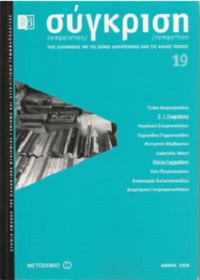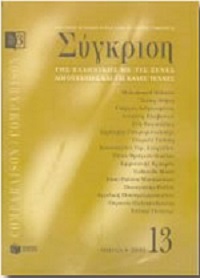An introduction to the notions of good end evil m the life and work of Naguib Mahfuz and Pier Paolo Pasolini
Abstract
The paper focuses on the study of Naguib Mahfuz's novel Awlâd H' âratinâ (1959) and the narratives Romans (19'48-19'50) and Racconti Romani (1950-1966) by the writer, film director and theorist Pier Paolo Pasolini. The two writers had much in common, both in their personal life and the diversity of their work. They both began their lives in a time and place which deeply affected and formed them. In deep poverty, they tried to represent -with sympathy and understanding- a reality that had not been represented before, nourished by politics and religion. Both writers experienced a long, painful period of imposed silence: that was when Mahfuz started writing Awlâd H' âratinâ and Pasolini began the Racconti Romani. In Awlâd H'âratinâ, the Gebelawi children symbolize angel-children or demon-children, consonantly with the alternation οι good and evil·, in Romans, the youngsters embody at the same time the diabolic and the angelic element, through their inborn religiousness. In the works of both writers, the unbroken succession οι good and evil, light ana dark, turns time into a power of decisive importance. But while in Awlâd H âratinâ the dark bears the seed of hope to see cruelty come to an end, in Racconti Romani the boys from the poor suburbs of Rome live in darkness carrying, unaware, the light in them.
Article Details
- How to Cite
-
Βλαβιανού Α. (2017). An introduction to the notions of good end evil m the life and work of Naguib Mahfuz and Pier Paolo Pasolini. Comparison, 19, 85–100. https://doi.org/10.12681/comparison.10374
- Issue
- Vol. 19 (2008)
- Section
- Articles

This work is licensed under a Creative Commons Attribution-NonCommercial-ShareAlike 4.0 International License.
Authors who publish with this journal agree to the following terms:
- Authors retain copyright and grant the journal right of first publication with the work simultaneously licensed under a Creative Commons Attribution Non-Commercial License that allows others to share the work with an acknowledgement of the work's authorship and initial publication in this journal.
- Authors are able to enter into separate, additional contractual arrangements for the non-exclusive distribution of the journal's published version of the work (e.g. post it to an institutional repository or publish it in a book), with an acknowledgement of its initial publication in this journal.
- Authors are permitted and encouraged to post their work online (preferably in institutional repositories or on their website) prior to and during the submission process, as it can lead to productive exchanges, as well as earlier and greater citation of published work (See The Effect of Open Access).




